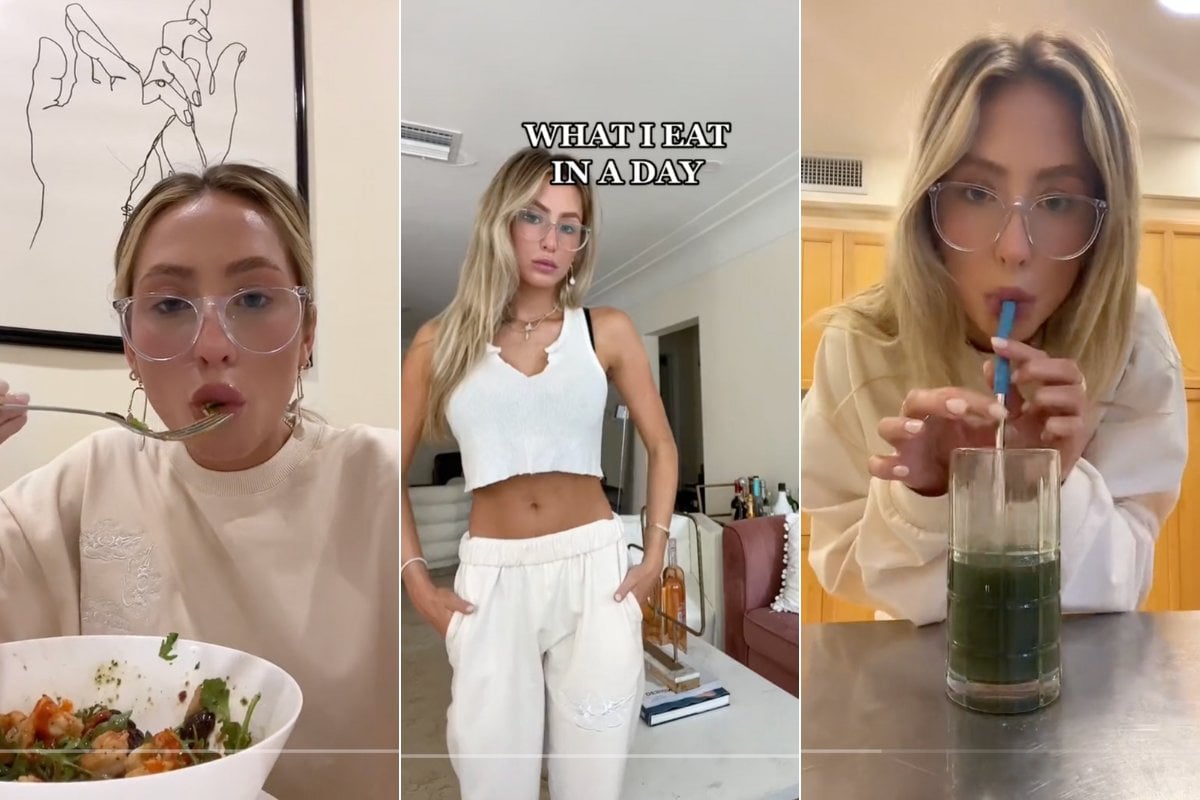
A toxic diet trend of the 2010s is making a dangerous comeback supercharged by TikTok's algorithm. What I Eat in a Day content has experienced a massive resurgence on the platform, clocking up billions of views.
As the name suggests, creators share what they eat over a 24-hour period. It may sound boring but this type of content is a massive engagement driver for many online creators.
The trend originated on YouTube more than a decade ago, but thanks to the inception of TikTok, it's even easier now for everyday people to share what they eat and for others to follow.
Watch: Brigid Delaney shares the reality of trying out the 101 Day Detox Diet. Post continues after video.
Australian influencers are jumping back on the trend in their droves, despite it once being considered taboo. Sarah Tilse is one of them.
Better known by her handle Sarah's Day, this week, the 31-year-old announced that after a long hiatus, she will again be sharing what she eats in a day. The controversial influencer said she's excited to go back to filming the content that once formed the basis of her YouTube channel.
"Back in the day in 2013 when I would film these videos, I was so fixated on looking a certain way and being shredded and being at low body fat. Or I was trying to get my period back or trying to heal my acne. There was always a specific goal in mind in terms of what I was putting into my body.
